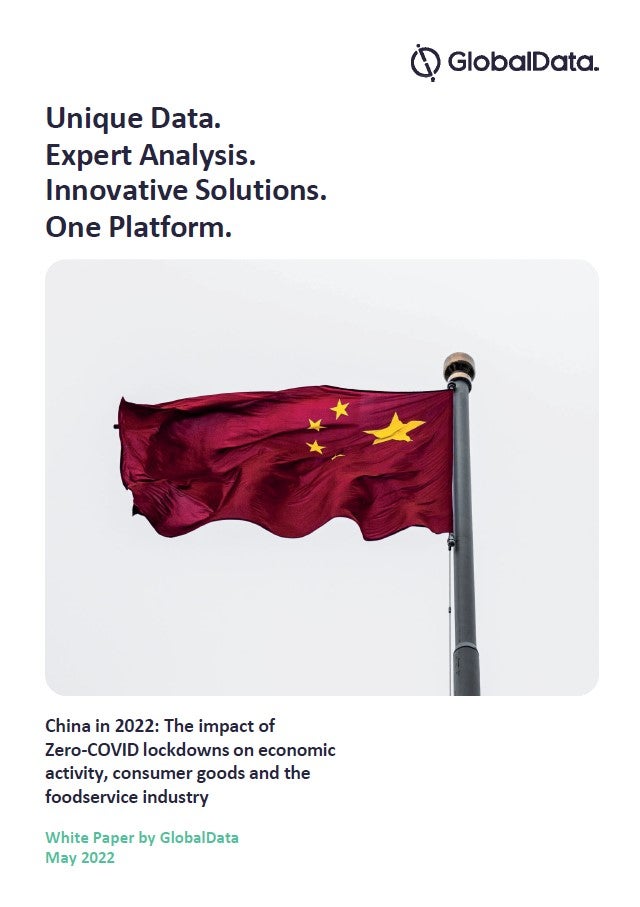
In the year since the Covid-19 pandemic began, various unconventional treatments have been hailed as potential cures for the respiratory virus that has so far claimed over three million lives worldwide.
While the likes of dexamethasone, Gilead’s remdesivir and various monoclonal antibody treatments have been granted emergency approval for the treatment of certain hospitalised Covid-19 patients, the availability of these drugs varies wildly around the world, and supplies are particularly scarce in the most resource-limited settings. In these conditions, and with large numbers of new cases still being reported in various countries, the stage is set for some citizens and physicians to improvise with unapproved or off-label remedies.
How well do you really know your competitors?
Access the most comprehensive Company Profiles on the market, powered by GlobalData. Save hours of research. Gain competitive edge.

Thank you!
Your download email will arrive shortly
Not ready to buy yet? Download a free sample
We are confident about the unique quality of our Company Profiles. However, we want you to make the most beneficial decision for your business, so we offer a free sample that you can download by submitting the below form
By GlobalDataOne of the latest supposed silver bullets is inexpensive antiparasitic drug ivermectin. The drug, which was discovered in 1975 and commercialised in the early 1980s, came into the Covid-19 picture after Australian researchers last year reported it could inhibit in vitro coronavirus replication in large doses.
Commonly used to treat parasites in animals and head lice in humans, the drug has now been permitted as a treatment for Covid-19 patients in several of the worst-hit countries, including Slovakia, the Czech Republic and swathes of Latin America.
Key regulators warn against ivermectin against Covid-19
The problem? V������ health authorities have consistently recommended against using ivermectin to treat coronavirus.
The FDA’s position is that the widely available drug is not approved for use against Covid-19 in the US, and the agency said it had received multiple reports of people who have “required medical support and been hospitalised after self-medicating with ivermectin intended for horses”. The European Medicines Agency has said the available data does not support the drug’s use for Covid-19 “outside well-designed clinical trials”, and the World Health Organisation also concluded that ivermectin should only be used to treat the virus in a clinical trial setting.
The drug’s manufacturer, pharma giant MSD, also warned that its analysis of ivermectin identified “no scientific basis for a potential therapeutic effect against Covid-19 from pre-clinical studies”, “no meaningful evidence for clinical activity or clinical efficacy in patients with Covid-19 disease” and “a concerning lack of safety data” in most studies.
The pro-ivermectin campaign has taken a particularly strong hold in South Africa, where coronavirus infection rates are among the worst in the continent and the vaccination programme has yet to cover all of the country’s most vulnerable. Some doctors have been prescribing the worm drug to Covid-19 patients, claiming anecdotally that it alleviates virus symptoms, despite the South African Health Products Regulatory Authority (SAHPRA) warning against its use. Ivermectin is also thriving on the country’s black market, where one tablet can sell for as much as R500 (£25), and sales of veterinary forms of the drug have skyrocketed.
Grassroots collectives such as the Ivermectin Interest Group – formed of South African health practitioners, public health experts and medical scientists – have campaigned for approval of the drug, while civil rights group AfriForum earlier this year filed a court case against SAHPRA to have the treatment approved for Covid-19 patients. After initially allowing “controlled compassionate use” of the drug in an attempt to curb illegal sales, the health agency this month received a high court order to permit the off-label prescription of ivermectin by doctors.
The Philippines’ Food and Drug Administration has faced similar pressure, as the country faces surging coronavirus cases and a dwindling supply of vaccines. The agency recently granted permits for two hospitals to use ivermectin on a controlled basis, admitting there had been “pressure” to issue the approvals. The agency did not specify the source of the pressure, but many Filipino doctors and health experts have called for ivermectin to be approved in recent months. In March, one doctor was even found to have sold self-made ivermectin tablets to at least 8,000 patients without a permit.
Ivermectin: solid evidence still lacking as demand surges
In Latin America, widespread recommendation of the antiparasitic was largely based on findings in a now-retracted preprint by health analytics company Surgisphere, which fell into disrepute after its Covid-19 data was found to be largely unreliable. Though Peru reversed its inclusion of ivermectin in national coronavirus treatment guidelines following the scandal, several other countries in the region continue to recommend it.
Demand for ivermectin as a Covid-19 preventative has surged in nations like Bolivia, where last May healthcare workers distributed 350,000 doses to northern residents. One former Peruvian health minister told that clinical trials investigating ivermectin in the south of the continent last year struggled to recruit participants because much of the population was already using the drug.
Latin America has some of the worst Covid-19 death rates in the world, and widespread poverty has been exacerbated by the pandemic. With vaccination programmes slow to roll out in parts of the region, it’s unsurprising that people are anxious to find inexpensive ways to tackle the virus, even if the clinical evidence backing its use is slim.
Until the ongoing research on ivermectin can determine its antiviral potential and safety profile with certainty, people desperate to protect themselves will continue to self-medicate with dangerous quantities and forms of the drug. But that doesn’t mean approving it is the answer.
The ivermectin debate has highlighted the disparity in access to Covid-19 vaccines and treatments for low- and middle-income countries. The consequences of global healthcare inequality are clear: if life-saving vaccines aren’t available, people will be driven to take matters into their own hands – with potentially catastrophic results.




